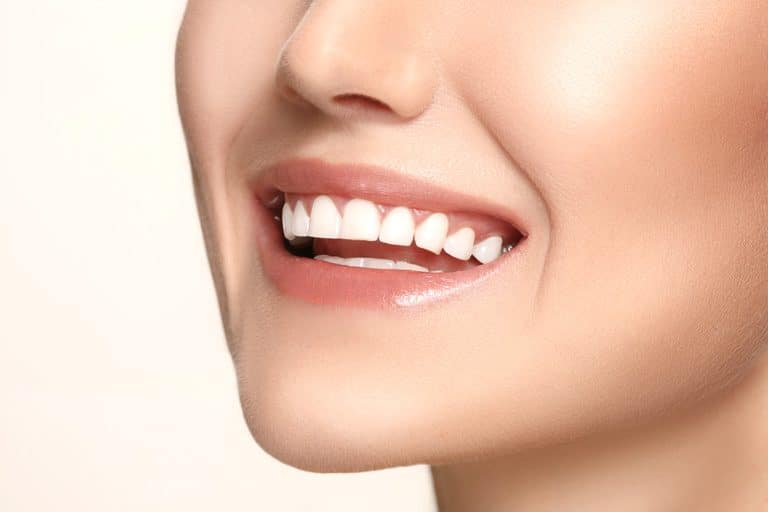DENTAL IMPLANTS
DENTAL IMPLANTS GIVE YOUR SMILE A NEW LEASE OF LIFE
Over time the health of your teeth can break down or be damaged or broken by accident. There's no need to be heart broken because Dental Implants could be the solution to keep the smiles coming.

What are Dental Implants?
Dental Implants (aka Teeth Implants) are essentially screws made out of titanium that sit in the jaw and are an artificial replacement for natural tooth roots. The screw-like anchor is attached to the upper and/or lower jawbone and gum tissue to provide a stable base for the artificial replacement of teeth.
It can be used for crowns, bridges and dentures providing for the most natural looking restoration option. Implants are a beneficial alternative to false teeth due to the longevity, comfort, cosmetic advantage, prevention of bone loss and sturdiness over bridges or dentures.
It is important to be aware that the dental implant procedure from start to finish can take 3-8 months.
Firstly, the damaged tooth is removed and if needed synthetic bone is usually added to increase stability and secureness. Once the bone is developed, the implant can be inserted into the jaw and a screw is inserted to prevent debris from entering the area. It will take another 3-6months to check the implant is stable.
Finally, a crown will be made to best suit your natural/surrounding teeth. Then you can enjoy your beautiful smile! Come in today to discuss your options.
Benefits of Dental Implants
The biggest benefit of dental implants is restoring the overall function of a missing tooth in a way that other processes simply can’t.
Teeth are important. They help us chew, eat, and talk. Everyone knows this. But what is less commonly known, is that they also help shape our whole face.
Many people are familiar with the classic image of an elderly person whose mouth seems to have shrunk under their nose. This is because they’re missing most, or all, of their teeth and their jaw bones have shrunken considerably. But why does the jaw do this?
Our bodies are constantly creating and reabsorbing cells, so we’re always changing in subtle ways. It’s why we look different as we get older. So when we extract teeth, we leave gaps not just between the teeth, but in the bone where a tooth root used to be. Because our bodies are changing and shifting, these gaps start to close.
Because dental implants replace missing tooth roots, they help maintain the shape and functionality of our jaws. There are plenty of options for restoring the crown of a tooth, but only a dental implant gets down to the root.
Really, it’s the closest thing you can have to a real tooth in your mouth.

What is less commonly known, is that teeth also help shape our whole face.
Who Can Get Dental Implants?
There’s no real age limit on who can get dental implants. The only age-related criteria is that you must be missing a permanent tooth to get an implant. There’s no point permanently replacing a milk tooth, they’re meant to fall out!
Otherwise, in terms of age, patients even into their 80s and 90s have successfully received and maintained dental implants. Young patients who have lost teeth are also suitable. It’s more dependant on the health of your mouth than your age.
Healthwise, there are a few considerations. If you have good oral health and sufficient bone volume to support the implant, you’re typically a good candidate.
However, contra-indicators for dental implants include:
- Smoking. Dental implants fail four times as often in smokers as non-smokers. Smoking also greatly increased the risk of gum disease, which can be disastrous in conjunction with intense oral surgery.
- Severe gum disease and periodontitis. The implant needs a healthy oral environment or won’t be well accepted by the body.
- Diabetes, heart disease, and other conditions which might increase the risk of gum disease or put you at risk during surgeries.
- Insufficient bone volume. If the tooth has been out of the jaw for too long and the bone has shrunk, there may not be enough bone to support the implant itself. It can be possible to get bone grafts for some patients.
The great thing about dental implants is that they feel and look just like natural teeth!

Other Uses of Dental Implants
Dental implants aren’t just great for restoring a single missing tooth. They can also be used to support or stabilise a variety of dental restorations. This allows you to restore your mouth without replacing each individual tooth with an implant.
Two or three implants, for example, can be used to support a bridge. These replace a row of one or more missing teeth.
Four to eight implants can be used to support a full denture, upper and lower. This allows you to replace an entire row of missing teeth on as few as four dental implants.
Looking for Dental Implants in Brisbane?
If you’re looking for a dental implant provider in Brisbane, why not book a no-obligation consultation with Enamel Dental Studio to discuss whether dental implants are the right solution for you. Our qualified and friendly dental team will explain the process, answer any questions and provide useful information so you can make an informed decision.
Call us on (07) 3841 6641 or email us at [email protected].
FAQ
Additional frequently asked questions about dental implants.
How long do dental implants last?
Dental implants have a 95% success rate over the last 20 years. If you take good care of them and maintain good oral hygiene, they should last the rest of your life.
Rejection of the implant is very uncommon, but can happen in people with rare titanium allergies. It’s estimated that maybe 4% of people have an adverse reaction to titanium. If you suspect you have an allergy, consult with your dentist first.
Are dental implants expensive?
Conventional dentures are not always cost-effective. The initial layout for dental implant treatment varies on how many implants are needed and if bone augmentation is required.
Other factors include the surgery itself, lab work, the prosthesis and the dentist’s and dental technician’s fees.
We will provide a cost plan when all of these aspects have been addressed, and in some cases, dental implants may be more economical in the long term solution.
Are there risks when placing dental implants?
Implant therapy is a well-proven, state-of-the-art medical dental technique that has been scientifically tested and used for decades by dentists and surgeons worldwide.
Depending on the condition of each patient, potential risk factors may vary.
Bad oral hygiene or limited healing of the wound due to pre-existing medical conditions (for example diabetes and osteoporosis) may reduce the odds of the implant remaining in place.
Unfortunately, every surgical procedure carries potential risks and our dentists will evaluate whether dental implants are the right option for you.
Is the surgery painful?
Dental implants are generally inserted under local anaesthetic to help minimise discomfort during the operation. Patients experiencing any doubts about the condition of the implant site after the procedure, should make sure to consult a dentist.
Is there any age limitation to dental implant therapy?
It is possible to insert implants as soon as the jaw has stopped growing. Therefore, in young patients, dental implants can only be placed once their jaw bones are fully developed.
At the other end of the spectrum, there is no age limit, given of course that the patient does not display any significant medical risk factors. This will be evaluated by the dentist.
How long do I need to wait for my final restoration?
After insertion of your implant, the bonding process (osseointegration) takes about 6-8 weeks.
In this time, the implant reaches the stability needed for it to bear weight like a natural tooth. As always, healing times can vary depending on the individual condition and indication.
Are there any special aftercare measures required?
Impeccable oral hygiene is vital before an implant can be placed. After insertion, teeth need to be carefully looked after, irrespective of whether they are real or artificial. Diligent oral hygiene helps to ensure satisfactory results.
Caring for your implants is the same as normal dental hygiene: you’ll need to brush, floss, and have dental checkups regularly. In addition, we will explain which dental tools and kinds of toothpaste are best to preserve your implants.
With proper care, dental implants can last a lifetime!
Can’t find the answer you need?
Please contact us directly on (07) 3841 6641 or email us at [email protected].
